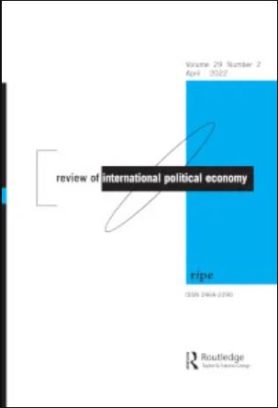Review of International Political Economy
As Western-led institutions of global governance adapt to global power shifts, the question of which countries dominate, and how, increasingly animates scholarship. Yet while attention has shifted from ‘Great’ to ‘Rising’ Powers, the underlying focus on market power has changed little. In this article, we shift the focus to alternative forms of power that developing countries can wield in global governance, specifically in highly technical transnational negotiations. Reconceptualising the notion of ‘regulatory capacity’, we argue that states can overcome limited market power through socio-technical resources: expertise and professional networks. These resources form the basis through which policy claims become authoritative and they enable emerging state coalitions to influence policy-making. To demonstrate this, we analyse developing countries’ involvement in standard-setting for international corporate taxation. Specifically, we study the newly established G20/OECD Inclusive Framework, an experiment where more than 140 jurisdictions participate in negotiations that were previously the preserve of OECD states. Based on unique attendance data and interviews with dozens of participants, we perform a detailed analysis of specific policy decisions, interrogating the extent and sources of developing countries’ influence. We find that socio-technical resources allow individuals from lower-income countries to achieve narrow yet significant successes, punching above their weight in global governance.
